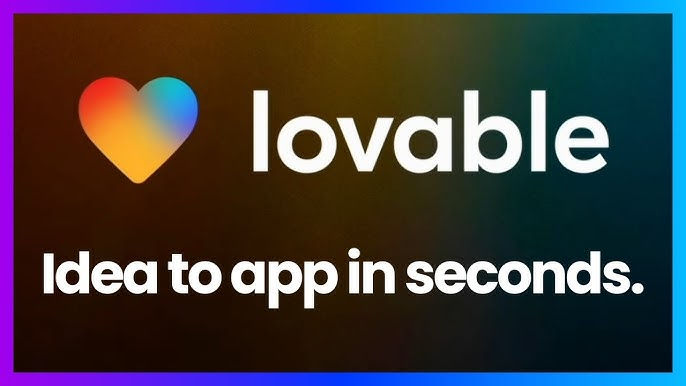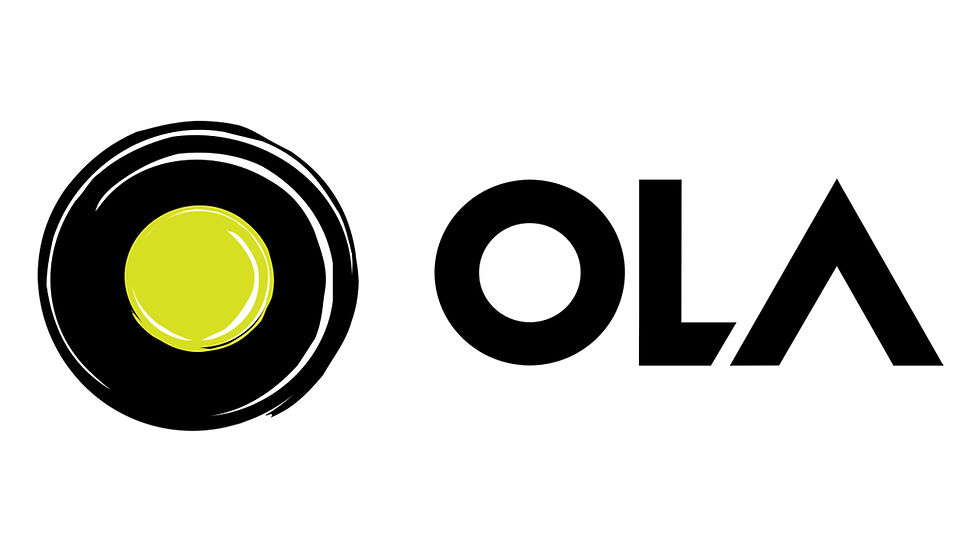Build an App with AI in 2025 – Easy Guide Using Lovable.dev
- Abhinand PS
.jpg/v1/fill/w_320,h_320/file.jpg)
- 8 hours ago
- 3 min read
Introduction: Why AI App Development is Changing Everything
In 2025, AI-powered app development is no longer a futuristic concept—it’s a practical solution used by startups, enterprises, and even solo creators. Instead of months of coding, you can now build functional mobile apps, SaaS products, and dynamic websites in days, simply by chatting with an AI-powered builder.
One of the leading platforms enabling this shift is Lovable.dev. Whether you’re a non-technical founder or a developer who wants to accelerate workflows, Lovable bridges the gap between idea and launch.

This step-by-step guide will walk you through how to develop an app with AI in 2025—from concept to deployment.
🔑 Quick Steps to Build an AI-Powered App
Step | Action | Key Tools/Features |
1 | Define Your App Idea | Research problems, target audience, competitors |
2 | Start Your Project on Lovable | Chat prompts, pre-built templates, remixing |
3 | Build & Customize | Add UI, backend, APIs, integrations |
4 | Test & Debug | AI-assisted debugging, error investigation |
5 | Deploy Your App | Push to Netlify/Vercel, enable SEO optimization |
6 | Launch & Market | Use ASO, social media, content marketing |
H2: Step 1 – Ideation and Planning Your AI App
Every great app begins with a clear idea. Before you jump into development:
Identify a Problem: What real-world issue does your app solve?
Research Your Audience: Who are your users, and what do they need most?
Analyze Competitors: Spot gaps in features and usability.
Define Core Features (MVP): Focus on essential functions before scaling.
👉 Pro tip: Use tools like Google Trends, Reddit, or customer surveys to validate your app idea.
(Internal resource suggestion: How to Validate Startup Ideas Quickly on abhinandps.com)
H2: Step 2 – Starting Quickly with Lovable.dev
Lovable gives you multiple entry points to begin:
Prompting: Simply describe your app. Example: “Create a finance tracker with login, monthly charts, and notifications.”
Templates: Use ready-made designs for e-commerce, dashboards, or social apps.
Remix Projects: Reuse or adapt existing public projects.
Visual References: Upload UI sketches, screenshots, or Figma files to auto-generate an app.
This flexibility makes development accessible for non-developers while giving experts deeper control.
H2: Step 3 – Customizing and Building Your App
Once your project starts, Lovable allows you to:
Build front and backend simultaneously for smoother integration.
Add APIs for payments, AI, or email automation.
Use chat mode for real-time changes.
Unlike traditional no-code tools, Lovable generates production-ready, scalable code—giving you long-term flexibility and cost savings.
H2: Step 4 – Testing and Debugging with AI Assistance
Even with AI, apps need testing. Lovable offers:
AI-powered debugging with “Try to Fix” tools.
Rollback to previous versions if experiments fail.
Issue investigation via integrated environments (e.g., Supabase for backend errors).
👉 This reduces downtime and ensures your app is stable before launch.
H2: Step 5 – Deployment and Optimization
When your app is built:
Deploy instantly via Netlify or Vercel.
Optimize SEO, metadata, and branding within the platform.
Ensure mobile and cross-device responsiveness.
With built-in SEO optimization, Lovable helps your project rank well right from launch.
H2: Step 6 – Marketing and Scaling Post-Launch
Building is only half the battle—promotion drives adoption.
Leverage social media, influencer outreach, and App Store Optimization (ASO).
Use AI-driven analytics to track user behavior.
Continuously improve with feedback loops and updates.
For larger teams, Lovable’s Business and Enterprise plans provide governance, SSO, and scaling options to sustain growth.
FAQ: Building Apps with AI in 2025
Q1. Do I need coding skills to build apps with Lovable.dev?👉 No. Lovable handles the coding. You just describe what you want, though tech-savvy users can customize further.
Q2. Can apps built with Lovable scale for real businesses?👉 Yes. The output is production-ready, with API integrations and backend support, making it scalable for startups and enterprises alike.
Q3. What’s the biggest advantage of using AI for app development?👉 Speed and accessibility. Apps that used to take months can now be launched in weeks or even days, all without a large development team.
Final Thoughts: The Future of App Development is Conversational
By 2025, the gap between imagination and implementation is smaller than ever. With platforms like Lovable.dev, building an app is as simple as having a conversation.
Whether you’re a solo founder testing an idea, a business scaling internal tools, or a student building your first product, Lovable makes the process fast, accessible, and cost-efficient.
✨ The future of app development isn’t about writing lines of code—it’s about telling AI what you want to build.



Comments